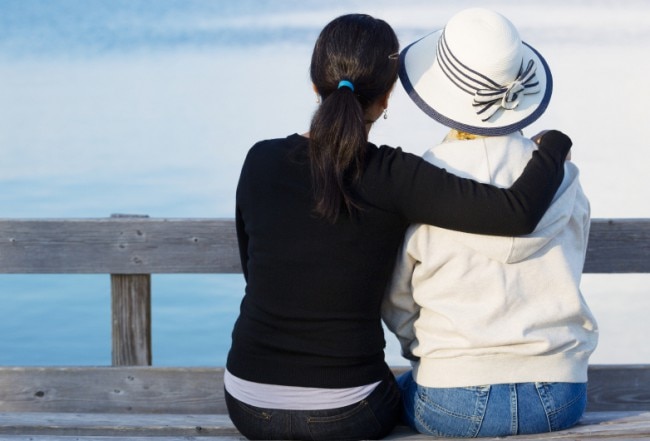Caregiving is not for the faint of heart. As anyone who does it knows, being a caregiver is metaphorically—and literally—draining. For example, caregiving spouses between the ages of 66 and 96 who experience mental or emotional strain have a risk of dying that is 63 percent higher than that of people your age who are not caregivers. Chalk it up to the triple whammy of loss, prolonged stress, and the physical demands of caregiving jobs. All these factors make you especially to significant health problems as well as an earlier death.
If you are a baby boomer, don’t be lulled into thinking this is just an issue for older caregivers. For baby boomers burning the candle at both ends--caring for their parents while also juggling work and raising adolescent children--you face an increased risk for depression, chronic illness and a possible decline in quality of life.
Even knowing the odds, family caregivers of any age are less likely than non-caregivers to actively engage in self-care. Caregiver burnout and stress affects everyone—it does not discriminate on the basis of age, sex, and race and ethnicity. If you are a caregiver, watch out for the following signs of stress:
- Feeling overwhelmed or constantly worried
- Feeling tired most of the time
- Sleeping too much or too little
- Gaining or losing a lot of weight
- Becoming easily irritated or angry
- Losing interest in activities you used to enjoy
- Feeling sad
- Having frequent headaches, bodily pain or other physical problems
- Abusing alcohol or drugs, including prescription medications
But caregiver stress is not something you must passively accept as part of the deal. Here are a few strategies for how to manage stress levels.
Say yes to help
Don’t try to go it alone. When help is offered, swallow your pride, and say meekly, with gratitude, thank you. Delegate small activities, such as shopping or cooking, so that you can squeeze a walk or a yoga class in.
Know your limits
If you have enough on your plate, it’s time to get in touch with your boundaries.
Learn to say no to requests that are draining, such as hosting holiday meals or ambitious outings that end up exhausting more than delighting.
Find your tribe
Connecting with people who are on a similar path can do wonders in making your feel less alone. Find out about caregiving resources in your community. And don’t neglect to keep up with old friends and family with whom you can relax and let your hair down with.
Prioritize your own health
Pick a goal to focus on, such as healthy sleep habits, consistent exercise or a mindful diet. Stay hydrated, put effort into eating a diet of fresh, whole, unprocessed food, and keep on moving. A strong body goes a long way to combat the enormous amount of energy extreme caregiving requires.




